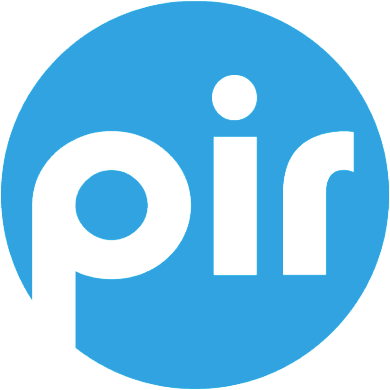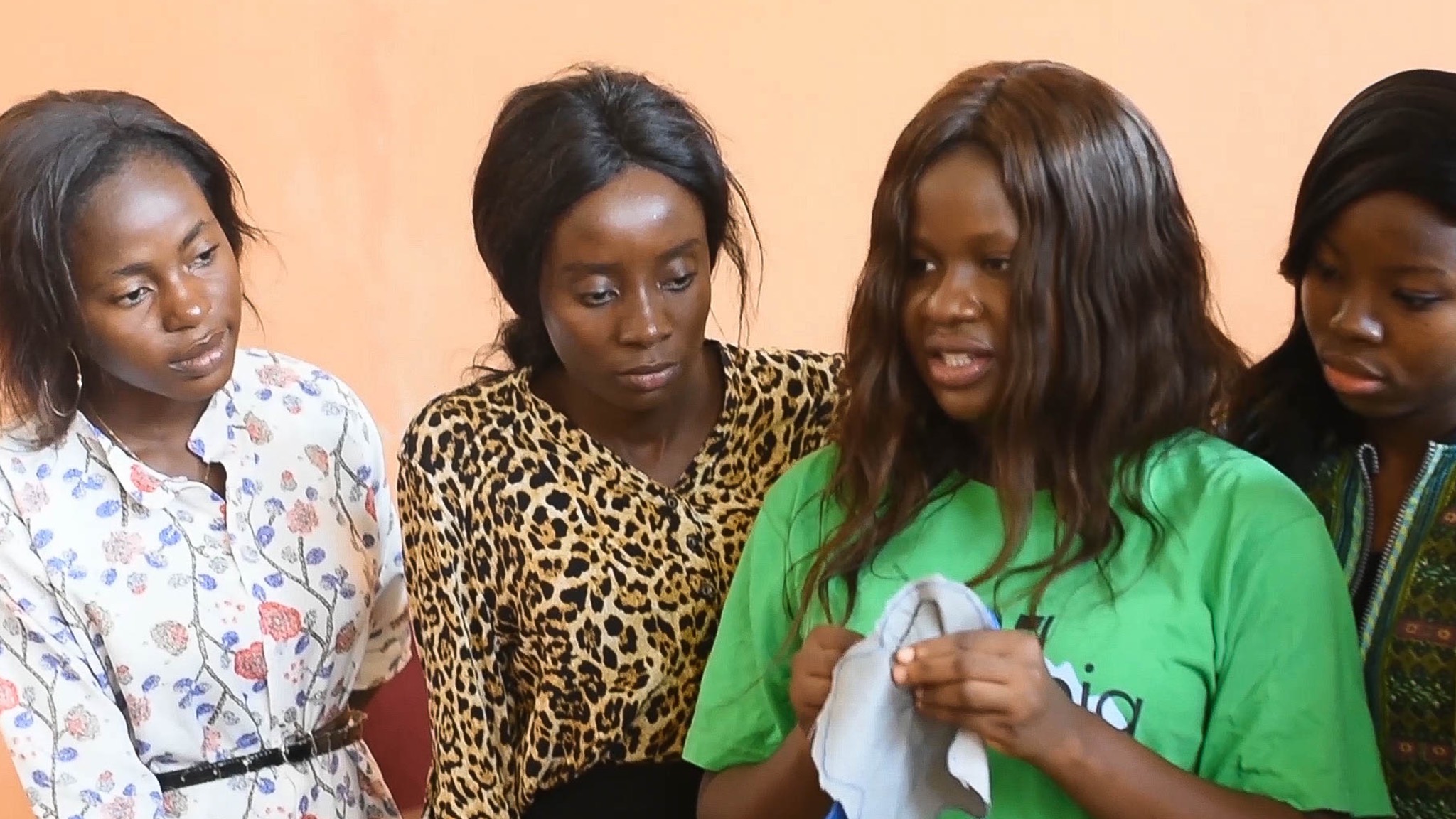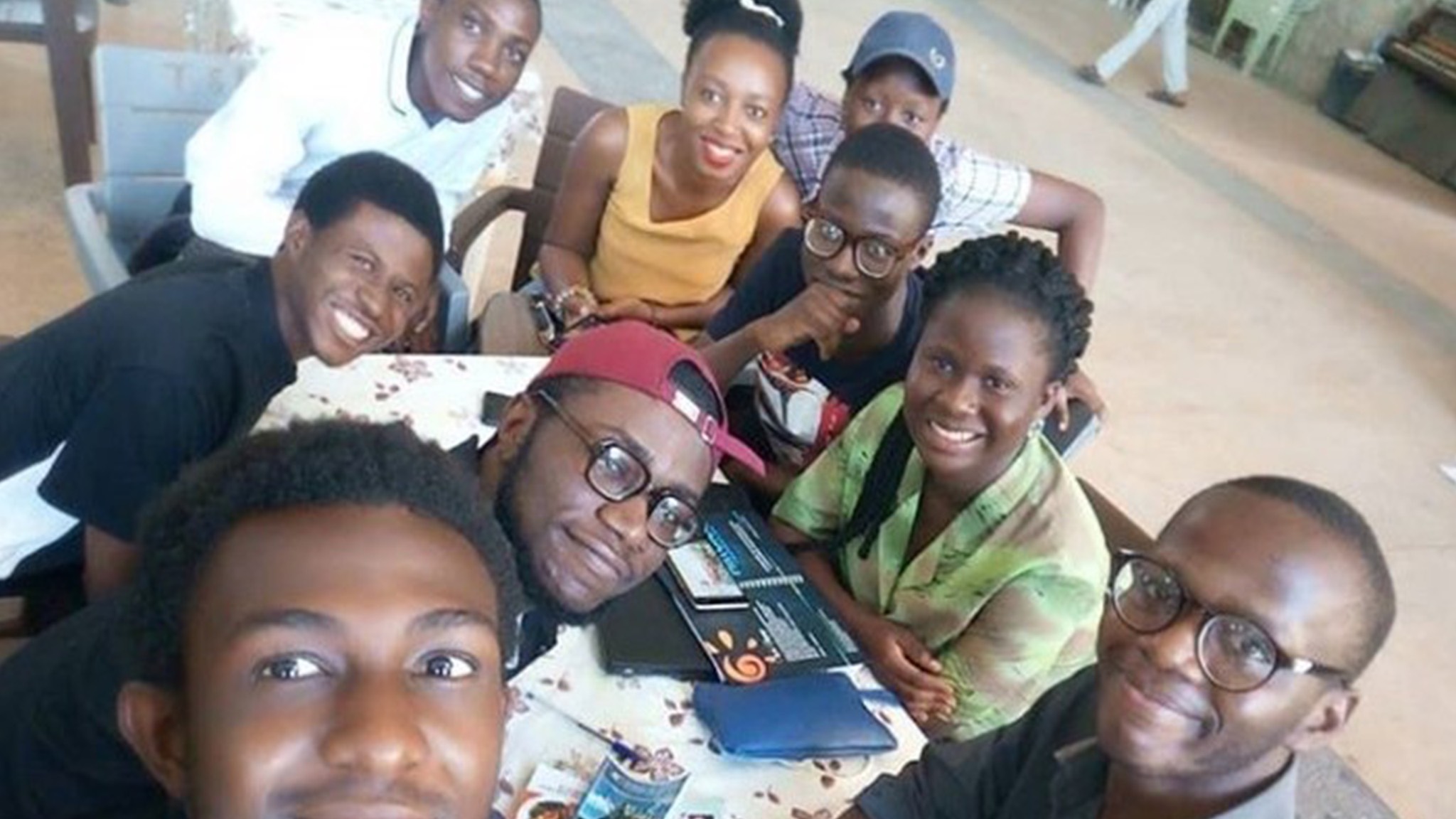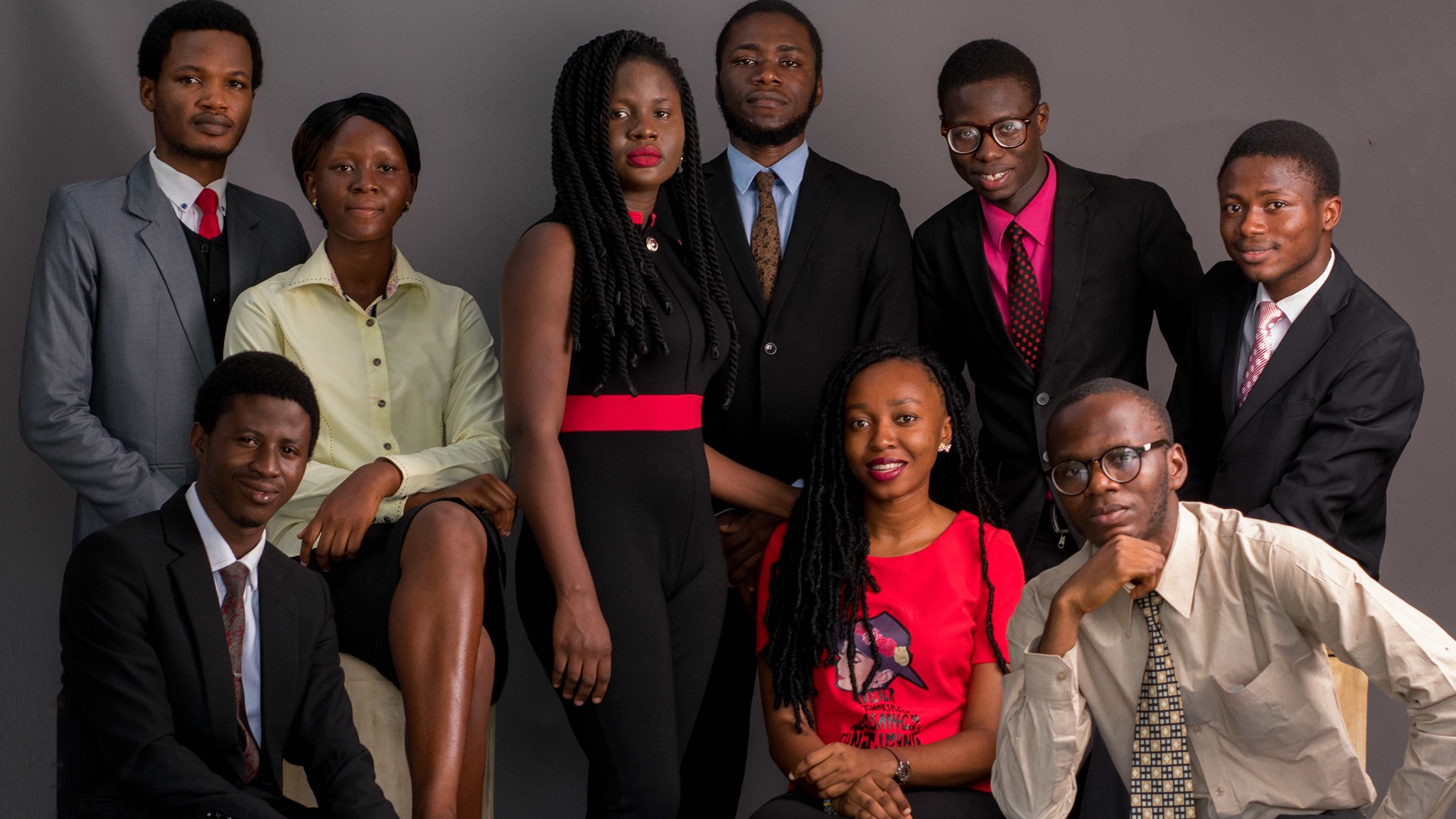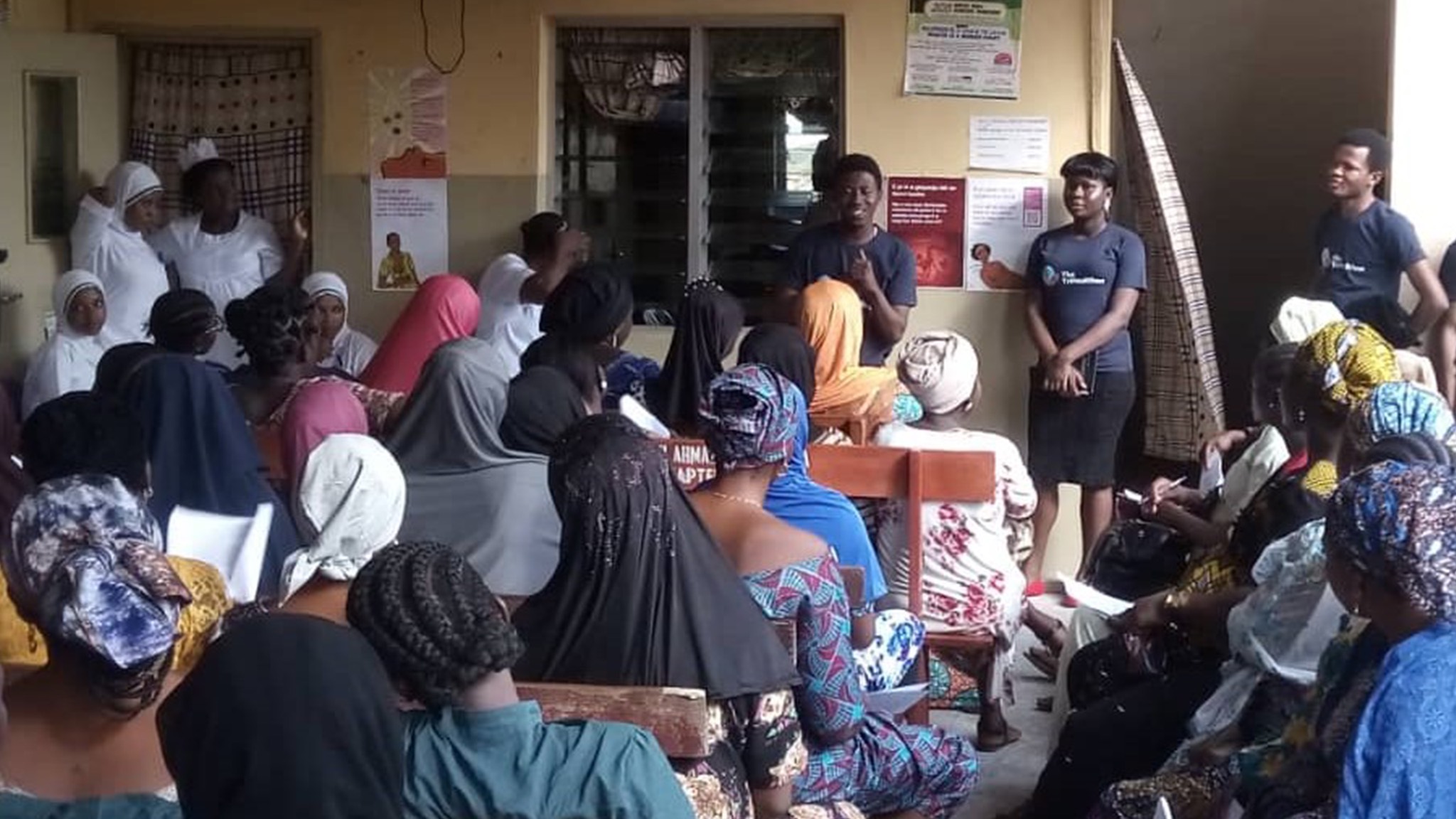Going the Distance: Ending Nigerian Health Inequity
The TriHealthon’s Founder and Director, Esther Ejiroghene Ajari, faced many struggles as a girl growing up in Nigeria. The tenth child of a polygamous family, Esther recalls often having little or no access to even the most basic necessities. The disadvantages could have crushed her spirit, but instead they propelled her. “I knew that I was smart and that my future was going to be bright,” says Esther.
Esther was inspired to help others avoid the difficulties she had experienced. When the Wells Mountain Initiative sponsored her to attend the 2018 Dream Big conference in Uganda, she was motivated by the message of keynote speaker and Wells Mountain Initiative Founder Tom Wells: “If you want to do something, don’t wait.” Upon returning to Nigeria, she immediately began researching how to help African women and children.
“I wanted to help [this population] because they are one of the most vulnerable sets of people on the planet,” says Esther. After personally experiencing limited access to sanitary napkins, through community surveys, she learned she was not unique in experiencing period poverty: two in three African girls and women cannot afford basic sanitary care products. “The statistics were staggering. I could not sleep,” says Esther. So, she took action.
Esther and eleven fellow medical students founded The TriHealthon, with a mission of eliminating health inequities by addressing preventable and treatable conditions head-on. The name of the organization, The TriHealthon, is a nod to three initiatives: sexual health and reproduction; child malnutrition and diarrhea; and global research. The core team, along with dedicated volunteers, conduct collaborative research with other African nations and perform community outreach in Nigeria for two direct programming endeavors, all while working toward their medical degrees.
This outreach work can be challenging; it often requires support and buy-in from local communities that are sometimes skeptical of outside assistance. For example, The TriHealthon representatives once visited a school to conduct a sexual health and reproductive rights workshop, only to find the school system had more immediate and fundamental needs. Primary school children were surrounded by damaged chairs and chalkboards, a broken-down environment that impacted their outlook and ability to learn.
“We had to adapt,” Esther remembers. “We had to listen to what they were telling us they really needed. Getting that environment right for [the students] was a huge one for us.” Another direct intervention program that has been especially impactful is teaching girls how to make reusable pads. “In this particular intervention, we’ve seen the lives of people transformed,” says Esther. She notes one in ten African girls skip school or drop out entirely due to period poverty.
Through workshops about sexual and reproductive health—and their business division, T-PADS, which sells menstrual sanitary kits—The TriHealthon is having a measurable impact on the mental and physical health of girls. Grades, attendance, and participation in after-school activities are all on the upswing, says Esther. And as student health improves, the community has seen a ripple effect. “Teachers see their [students] thriving and motivated, and parents are less stressed because they can put money that would be spent on pads toward other basic amenities,” Esther says.
To address the pervasive life-threatening problem of childhood diarrhea in Africa, The TriHealthon offers education on proper breastfeeding techniques, nutritional food items, and signs of dehydration. In addition, the organization empowers women of childbearing years by teaching them about entrepreneurship and innovative agricultural practices. The TriHealthon advances this work by consistently publishing health research findings that shed light on these important issues.
“I’m really, really proud of how our little work is transforming lives in Africa,” Esther says. The TriHealthon’s “little work” is having an increasingly big impact. In 2020, they were invited to present at the International AIDS Conference about alternative therapies for HIV/AIDS, such as body scan meditation and mindfulness practices.
The organization has ambitious goals for the future: ending childhood malnutrition, period poverty, and teenage pregnancy in Africa by 2030, according to the .ORG’s website. To learn more about and TriHealthon’s research and work to help women and girls, please visit www.the-trihealthon.org.
